'Don't Look Up' and the Non-Myth of Creation
"Citizens of Planet Earth, everything is theoretically impossible, until it is done."
I’m unsure how clearly this comes across in my writing, but I harbour and operate with an unyielding faith in humanity. This, in strategic contrast with my scathing mistrust in our institutions, and in ostensible conflict with my cutthroat attitude towards those who lack curiosity. I have this attitude because I’m human, and because the incurious are human, too.
This to say, all three of these things — my faith in humanity, my mistrust in our institutions, and my attitude towards incuriosity — are born of one of the most foundational facts of humankind:
Whether we believe so or not, there is a power that we have.
I cannot think of a single film that captures this so wholly, so deeply, and so accessibly as Adam McKay’s Don’t Look Up.
Let’s get a few things straight. First, Don’t Look Up is not a comedy film — it’s a drama that utilizes a comedic illusion to make a point. More on that later.
Secondly, Comet Dibiasky is an allegory for climate change, but Don’t Look Up is a stronger film when allegory is disregarded here. This is not because it makes the film more politically palatable, nor because the allegory itself is ineffective or unimportant. No, it’s because the more bandwidth we spend on the allegory, the more our attention is drawn away from what’s really going on here in this film.
And what’s really going on here is emotion, which — as Don’t Look Up seeks to illuminate — is the aforementioned power that too many people believe they do not have.
Think of emotion as the resource that we all use to respond to truth.
We respond to truth by creating something using the emotions that we find ourselves harbouring upon encountering these truths. The actions we take — both material and immaterial — in response to a truth are sparked by these emotions.
This creation can take the form crying for days on end, a government plan to blow up a comet, or a family dinner when we realize there’s nothing more we can do to stop it. All three of these creations (responses) necessitate an agreed-upon truth of a comet that can be responded to.
And as soon as Dr. Jocelyn Calder tells Randall (Leonardo DiCaprio) and Kate (Jennifer Lawrence) to “not be dramatic,” Don’t Look Up’s thesis is off to the races.
Donald Tru- I mean, Janie Orlean (Meryl Streep) is here as the president of the United States’ government; the institution to end all institutions — a monolith of real and imagined power that has everything to gain from humanity’s imagined lack of power.
And how does it prevent us from accessing our power? By not only removing truth from the equation — thereby preventing us from using our emotions to create a response — but by replacing it with specific emotions that discourage us from responding at all.
This is Orlean’s exact approach when our trio (Randall, Kate, and Teddy (Rob Morgan)) roll into the White House early on in the film, and she’s not shy about it.
RANDALL: There is 100% certainty of impact.
PRESIDENT ORLEAN: Please don’t say 100%.
…
PRESIDENT ORLEAN: You can’t go around to people telling them there’s a 100% chance that they are going to die.
…
PRESIDENT ORLEAN: Call it 70% and let’s move on.
Here, she’s not thinking about how to communicate the truth; she’s thinking about how to manage emotions by distorting the truth (a comet is going to kill us) into something more digestible and less likely to elicit a negative emotional response (“a potentially significant event”). This is for the benefit of herself, and, by extension, the benefit of the institution.
PRESIDENT ORLEAN: Three weeks. If this breaks before then we could lose Congress and then there’s nothing we can do about this anyway.
The two other main institutions in Don’t Look Up — BASH and The Daily Rip — follow a similar gameplan when it comes to emotion and truth. In our introduction to BASH CEO Elon Mu- I mean, Peter Isherwell (Mark Rylance), he gives a presentation on his tech company’s new cell phone software, which is capable of sensing when you’re sad via a touch-sensitive blood pressure sensor. If it notices this, it will send you a video of a puppy piggybacking on a rooster before scheduling an appointment with a therapist.
The goal is to “never feel sad again,” which is code for manufactured pleasure, and therefore manufactured emotion — pleasure without the stress of feeling, or “life without the stress of living,” per BASH’s slogan.
The stress of feeling? Of living? Both apt descriptors for our friend Dr. Randall Mindy. He’s neurotic, unstable, and riddled with feelings of inadequacy. Randall is one of those people who believes there is a power that he does not have.
Then the thirst tweets come along, followed by his affair with Brie (Cate Blanchett), and then his White House appointing. Suffice to say he gets drunk on the validation — on the artificial legitimacy that these institutions fill him up with, because he was not creating any legitimacy from within himself.
And in allowing these institutions to define his power, he begins to lose sight of what he’s capable of creating. He focuses on Twitter trolls instead of going on a walk with his wife (Melanie Lynskey) — the former a caustic hunt for validation from his faceless subscribers, the latter a chance to create a loving memory with his wife.
If we allow institutions to co-opt our emotions, it’s no longer our resource to create with. More on this down below.
Meanwhile, The Daily Rip — a nauseatingly pleasant talk show hosted by Brie and Jack (Tyler Perry) — eschews the seriousness of heavy topics for lighter interpretations of the same information.
BRIE EVANTEE: It’s something we do around here — keep the bad news light.
JACK BREMMER: Helps the medicine go down.
This directly reflects the hidden1 purpose of most all news programs — not to bring you facts that you can reckon with, but to bring you the emotions that they want you to feel.
The news purports to present facts, but you need to consider which facts it presents, and which facts it leaves out. Moreover, you need to consider how those facts are being presented linguistically. And all of that is assuming that the facts being presented are indeed facts.
Hence, news programs seek to deliver emotions, not facts.
This is what’s actually happening when they say “flood the zone.” You’re not being overwhelmed with information, but with the emotions that are intended by that information. This does two things:
First, it dilutes your emotions with the emotions presented by the news. This is how institutions co-opt your emotions (i.e. the resource you use to create). With all of these artificial emotions — courtesy of the news — in the mix, we subconsciously struggle to separate our emotions from those presented by the news. If the news is presenting us with “good” emotions (as is The Daily Rip’s bread and butter), we might not even feel compelled to separate them at all. Indeed, why not just feel good? “Life without the stress of living,” remember?
Secondly and subsequently, it causes you to lose track of whatever truth you would otherwise respond to. If you’re not comprehending a truth, you can’t create a response to it.
What makes this even trickier is the fact that we human beings are unreliable conduits for presenting truth in the first place, since we are inseparable from emotion. This is most deftly illustrated through Kate.
No one was ever going to respond to Randall’s babble about the Oort cloud, astronomic uncertainty, and Gauss’ method of orbital determination. They might all be truths, but academia is not a universal language — emotion is.
So along comes Kate, sitting next to Randall on The Daily Rip, who calmly, slowly, and woodenly gives the facts: there’s an enormous comet, and it’s going to hit the planet. But Brie and Jack, even if they comprehended what Kate just said, chuckle and charm their way through it, because their job isn’t to deliver facts; it’s to make people feel good.2
But maybe, says Kate, the end of the world is not supposed to feel good. Maybe it’s a horrifying truth that we need to recognize so as to create a response. As such, Kate attaches some horrifying emotion to this truth.
KATE: Maybe it’s supposed to be terrifying... and upsetting... and maybe we’re supposed to stay up all night, every night, crying when we’re all 100% for sure going to fucking die!
The mean-spirited memes follow shortly after — a sardonic response to Kate’s apocalyptic warning, perhaps so as to “help the medicine go down,” or dilute the truth to a point where we don’t feel the need to respond. After all, engaging with our emotions — our fundamentally powerful emotions that fuel our ability to respond — is scary.
But make no mistake — we’re meant to understand Kate’s attitude as a vice. She creates disempowering despair out of this horrifying truth — she’s depressed, cynical, defeated, and wants everyone else to feel that way, too. This, instead of leveraging her existential terror (and later despondency) to create something meaningful, such as the Just Look Up campaign, or love with Yule (Timothée Chalamet), both of which she comes around to creating later on.
Speaking of which, let’s talk about Yule.
In the portrait of Don’t Look Up — a portrait of the interplay between emotion and truth, and how vital it is that we don’t fear the act of creation — Yule is perhaps the most aspirational brush stroke.
YULE: My parents raised me evangelical, and I hate them. But I found my own way to it. My own relationship. I’d appreciate it if you didn’t advertise it though.
With this one line of dialogue, we learn all we need to know about Yule insofar as he fits into Don’t Look Up’s thesis. He’s estranged from his parents, and that estrangement damaged his relationship to his evangelicalism, since he once could not separate his evangelicalism from his parents. This estrangement is a truth — Yule hates his parents, but their influence was baked into a huge part of his life (the spiritual side); what was he going to do about this?
Well, per the aforementioned dialogue, he developed a peaceful and fulfilling relationship with his evangelicalism — one that was independent from his parents. This renewed relationship to his faith is his creation in response to the truth of his estrangement from his parents.
Moreover, we learn that he’s none too keen on showing his emotional side on account of the vulnerability that comes with engaging with those deeper emotions. But Kate — newly free from her own despairing prison — becomes a space where those emotions and vulnerabilities are allowed. Moments before they see the comet with their naked eyes for the first time, Yule asks Kate if she wants to make out, to which she replies “Why not?” In response, Yule says:
Can you not say “why not”? It makes me feel like you don’t want it. It’s shitty.
Within that interaction is an indictment of the charming, witty nonchalance that we use to avoid vulnerability. The same nonchalance that Brie and Jack use to avoid the proverbial medicine. The same nonchalance that the average internet user uses to distract from impending extinction events.
This leads all the way to the Mindy family and friends dinner scene, where it falls to Yule to lead the impromptu “Amen.” Here, he evokes the likes of forgiveness, grace, pride, doubt, love, dark times, courage, acceptance and fear. He attributes the virtues to God, and the vices to us humans, and just as well; by this point, human vice has led to human extinction. As a result, humanity’s defining virtue (creation) has been sacrificed, and therefore forsaken.
And yet, that’s just it. All of those things — virtues and vices alike — are human creations, if not in the sense of chronological origination, then certainly in the sense of spontaneous replication. Indeed, we are capable of creating forgiveness. We are capable of creating grace. We are capable of creating love.
And we’re capable of creating a rocket fitted with nukes so as to blow up the comet that’s hurtling towards Earth.
So why don’t we? Moreover, what good is our individual power against a comet that our governments refuse to take seriously?3
With that, let’s take a step back from the characters and look a bit bigger.
Remember at the beginning of this piece when I said Don’t Look Up is a drama that uses the illusion of comedy to make a point?
Well, I’m finally digging into that now. Don’t Look Up chiefly utilizes two different frames throughout its runtime. We’ll break them both down, starting with what I’ve aptly titled “Frame One.”
Frame One is an erratic, fly-on-the-wall, mockumentary-esque frame that’s oft utilized when we’re focusing on the noise on the ground, or outrageous interactions between our protagonists and the institutions. By simulating a loss of control, the camera conveys a sort of desperation. Perhaps it doesn’t feel like it has a comprehendible grasp on a truth, so it just bounces around the room in hopes of finding an amusing distraction.
This camera is presenting or otherwise endorsing emotions that aim to distract from the truth — if you think about it sincerely, President Orlean’s apathetic attitude is horrifying.
Frame One is the comedic illusion.
Now, recall that the film jokingly credits BASH as one of the film’s production companies, displaying “BASH Original Content” during the film’s opening moments/credits.
We can then pin the responsibility of Don’t Look Up’s Frame One on BASH. When we watch Don’t Look Up, what we’re witnessing is — in truth — a deep, sobering, and disturbing excavation of the human relationship to emotion and truth. And yet, it’s being presented to us comedically, as if to help the medicine go down.
Surely BASH would prefer that we snicker and sneer at this film rather than actually think about what it’s presenting. “Entertainment, without the stress of engagement.”
On to Frame Two — the movie that Don’t Look Up actually wants you to see.
Frame Two is gentler, sturdier, more mature, and is oft utilized when we’re looking at things like deep space, the comet itself, or one of the many expressions of life that populate our planet — polar bears, oceans, geckos, hummingbirds, tree frogs, newborn babies that have yet to be corrupted by the noise of institutions, among other things.
Here, the camera is not only observing undiluted truths, but also knows these things to be undiluted truths, unaffected by a human filter, and therefore unaffected by emotional inflection.4
And with the truth now unsullied by emotion — such is the camera’s gift of objectivity — we are now enabled to create a response.
That response? Well, that depends on you. Personally, I would evoke such notions as the truth of life, the truth of a home, or perhaps the truth of our own miraculous existence. Succeeding that (and boy would I succeed in that), I would create the notion that these things must be protected from the comet that threatens to wipe all of these things out.
In other words, I would want to help in the creation of the Just Look Up movement, which is precisely what Kate, Randall, and Teddy create using the power at their disposal — power that Kate and Randall had to realize they harboured.
But here’s another truth: no matter how many benefit concerts and rallies the Just Look Up movement puts on, the resources needed to create a response to the comet ultimately remain with the United States government, who refuse to stray from their agenda of greed. Here, we’ve reached an observable limit of Kate’s, Randall’s, and Teddy’s power, and thus, our own power.
And it’s here that we stumble upon Don’t Look Up’s ultimate revelation — the defining challenge wasn’t in learning how to respond to the existence of the comet, but to our helplessness against it.
The arc of Don’t Look Up, then, is the transfer of power to the individual from these institutions — these institutions that bombard us with curated truths that engender obedience, all while those of us in the know fall into agonizing despair over the institutions’ unthinkable misanthropy. These institutions that make us feel powerless until we realize we are not.
But what do we do when faced with something like this? What’s there to do when you’ve done all you can on the matter of the comet? When you’ve gone in and out of all the ears, when you’ve raised all the awareness about this planet killer, when you’ve put all possible pressure on the government, and they’re still going to sacrifice humanity despite the outcry, and you simply haven’t the seeds or time for revolution? What do you do? What do you still have the power to create?
Well, you can create a trip to the grocery store. You get vulnerable in Dr. Mindy’s car. You ask Kate if she wants to marry you. You bring groceries home and apologize to your wife. You cook together. You have a dinner together. You riff on the psychological effect of a store-bought apple pie. You hold hands. You turn off the news and all of its pesky, plastic emotions. You remain thankful that you tried.
This, all while BASH’s mockumentary frame begins glitching up and freezing. BASH can no longer hide the truth behind an illusion of placating comedy — the end of the world is here, and all we can do is face it with grace, courage, acceptance, and love for one another, because, at the end of the day, that’s all we’ve ever had.
RANDALL: The question is, “What would Carl Sagan do?” He would take it back to first principles. — Page 2 of the Don’t Look Up screenplay
RANDALL: The thing is, we really did have everything, didn’t we? I mean, when you think about it. — Page 124 of the Don’t Look Up screenplay
Reintroducing this individual power of creation — this power that many people believe they don’t have — is a pillar of the new film criticism. There is something decidedly unimaginative about the current institution and trajectory of film criticism, and it must be addressed.
I’ve seen Don’t Look Up be criticized for its lack of subtlety, as if Jason’s boneheaded monologues to Orlean’s followers aren’t intended to illustrate the superiority of emotions over any and all facts and truth whenever a human shares information.
I’ve seen it be lacerated for its pessimism, as though the apathy of the Orlean government and its donors are intended as an unchallenged stand-in for humanity when our fallible-but-emotionally-triumphant heroes are sitting right there, sharing dinner together.
I’ve seen it be mocked as “the leftie answer to Armageddon,” as though this movie is at all interested in championing freedom at the cost of order,5 and as though its most foundational mandate is anything other than a love for humanity.
I look at all of these criticisms, and of the rotely-opinionated criticisms across hundreds of thousands of films, and I can only think to myself, “What are we trying to create by indulging in film criticism?” Then I think, “What can we create by indulging in film criticism?”
Then, I do something like write about Don’t Look Up.
Though, at this point, it’s barely hidden.
And therefore complacent.
Or get sabotaged by the U.S. when they do take it seriously?
Other subjects of this frame include instances of honest human connection and unity (such as the initial rocket launch prior to Peter’s interference). It’s true that these subjects traffic in emotion rather than undiluted truth, but these emotions are direct invitations to create on a wider, collaborative scale, rather than emotions that intend to sabotage our ability to create.
As such, the defining factor of Frame Two is sincerity, but for the purposes of what I’m illustrating, I want to focus on the undiluted truths.
Liberalism is freedom at the cost of order. Conservatism is order at the cost of freedom. Those are the political definitions. That is all those words mean. What happened to us?



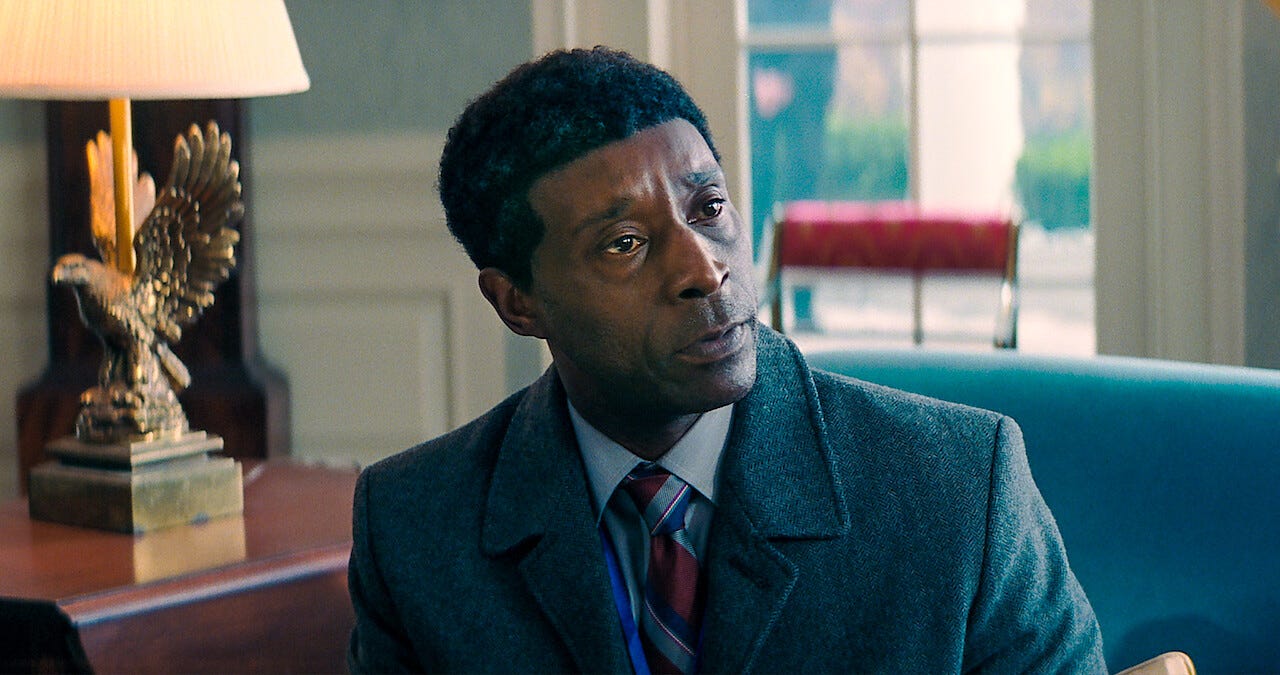
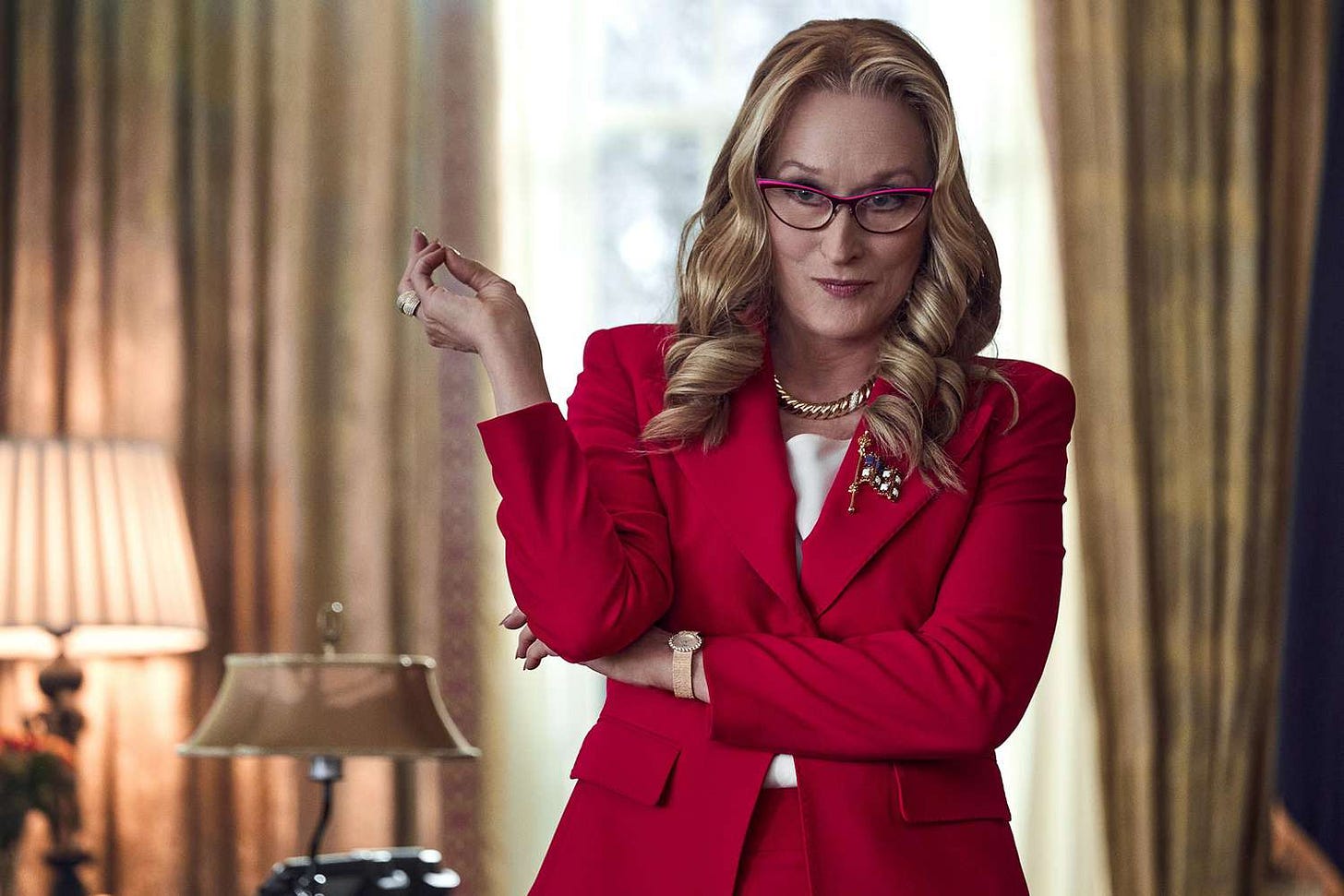
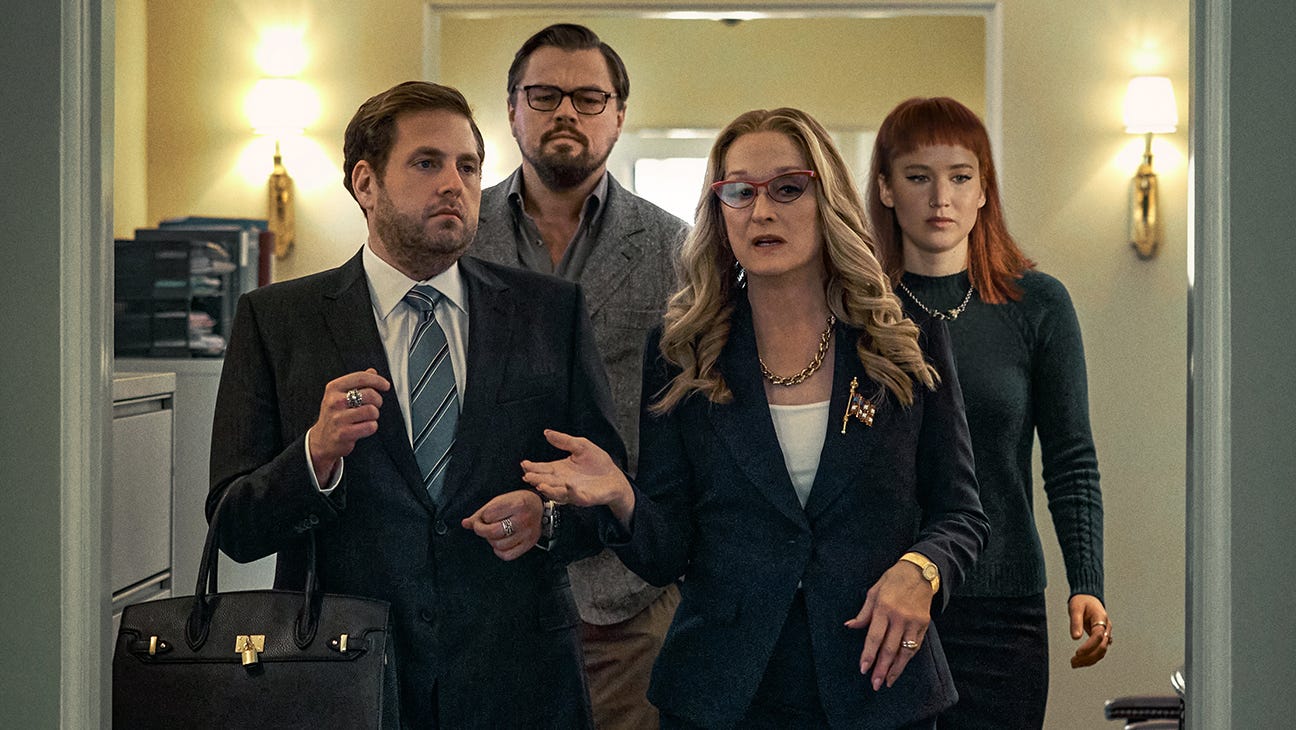
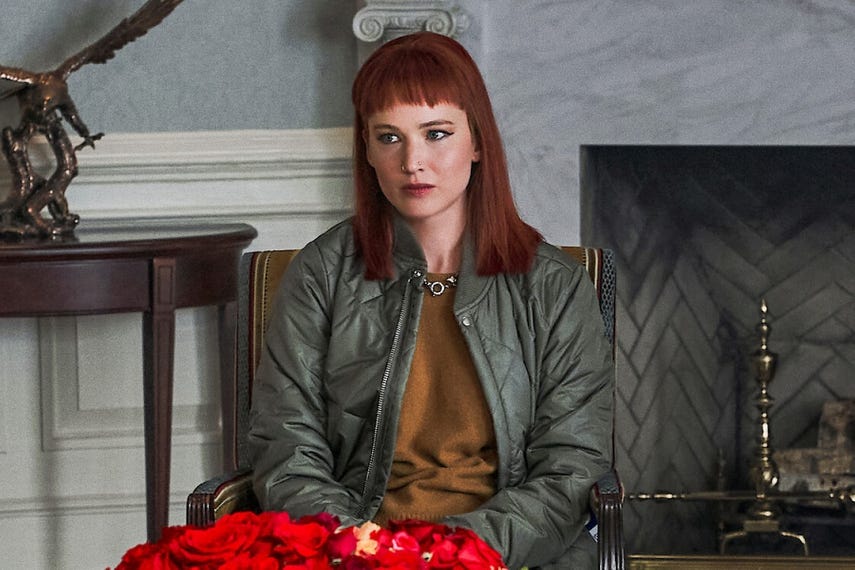
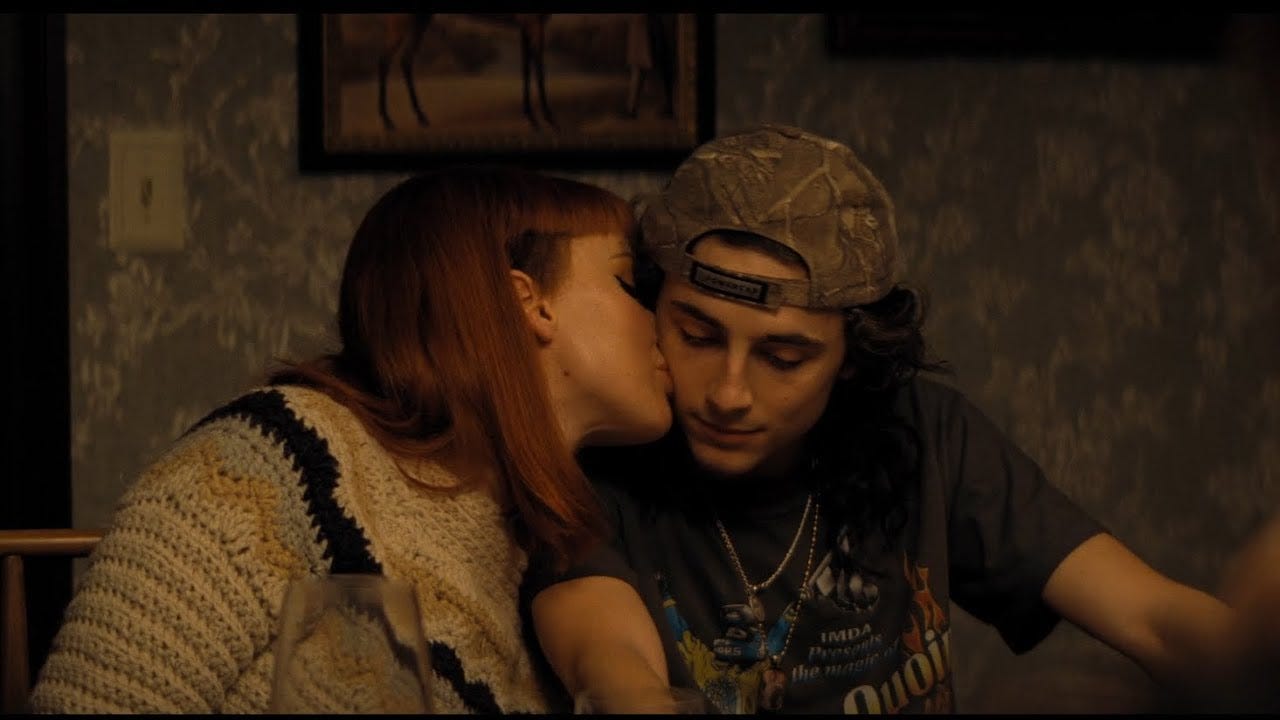
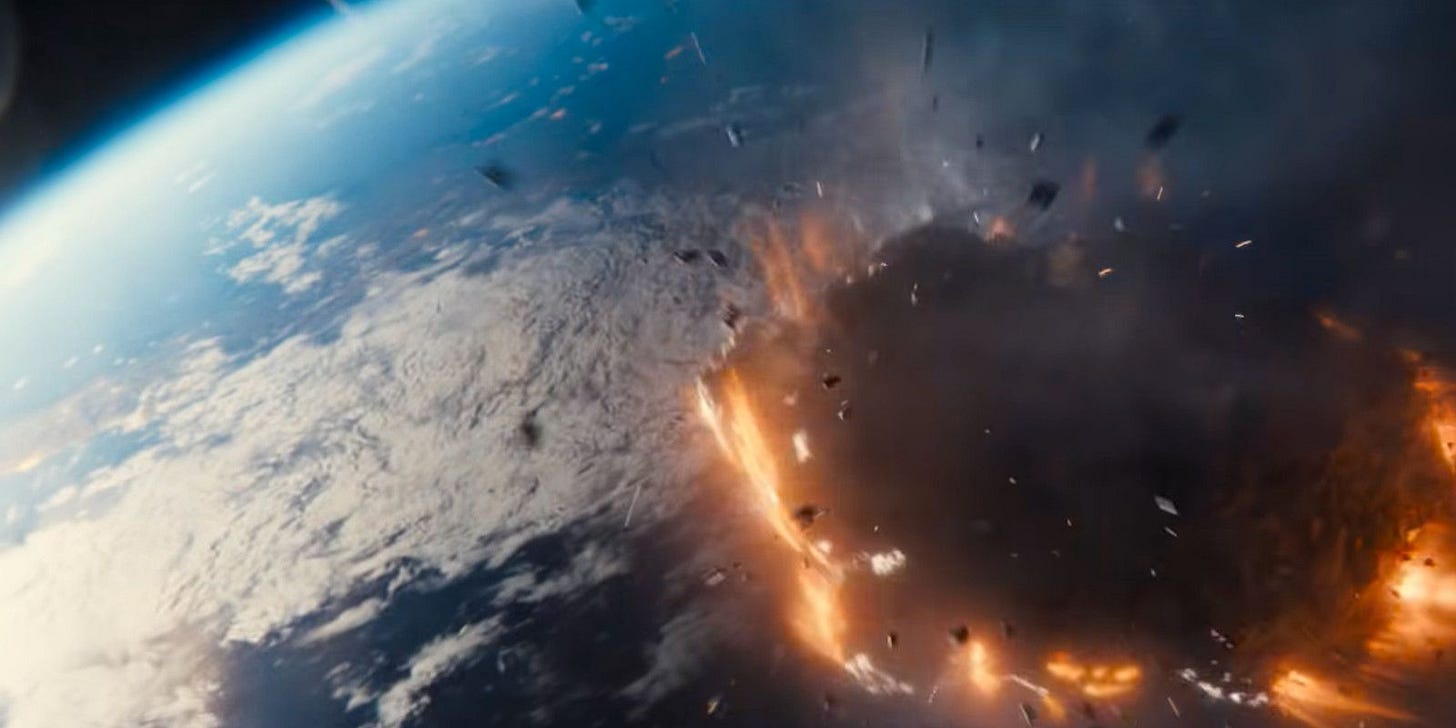


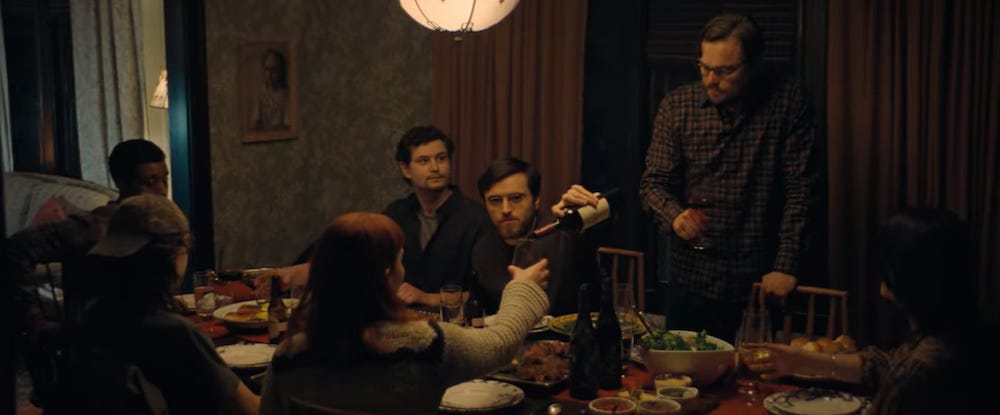
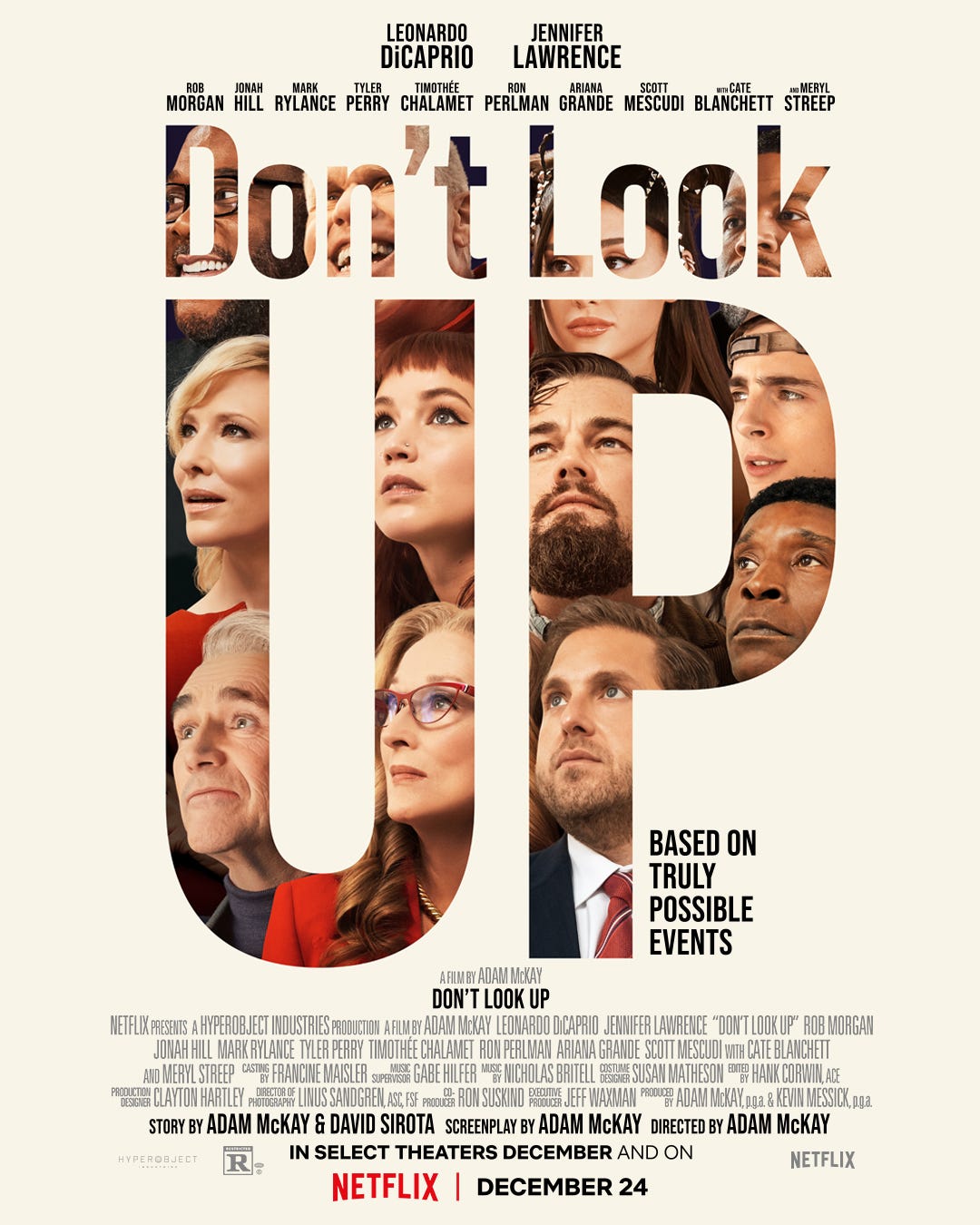
I could go on and on about how deficient film criticism has become in modern day. I was not particularly a fan of "Don't Look Up" -- you speak of the optimism of the movie (and make a strong case) but I keep going back to, for me, the movie's funniest joke -- the "five-star general" at the beginning of the movie inexplicably charging the scientists money for the free snacks. In essence, there is no scenario, not even the end of the world, that the craven and soulless among us won't exploit for their own selfish gain. I am generally an optimist about politics, but not in this movie's case.
But as far as the weakness of these modern critics, it's clear they keep watching movies with preconceived notions of what a movie is meant to be, which means they will be rankled when a movie does not fit their narrow rubric. They're not poised for something new, a fresh idea, something that may force them to write introspectively about an element of a movie they don't fully understand. I think "Adam McKay's Star-Filled Netflix Movie Don't Look Up" gave them too many assumptions about what they felt this was supposed to be.
Film criticism is dying, and the response needs to be to expand it into the realm of humanity and philosophy, as you do. Too many critics act as if people still want to only have a discussion where the movie is the text, and people plugged in to the world around us, the suffering and inequities and even the beauty are ideas somehow irrelevant to whether or not something is "** 1/2" or "***".
Fromtheyardtothearthouse.substack.com
loved reading this one ♥️